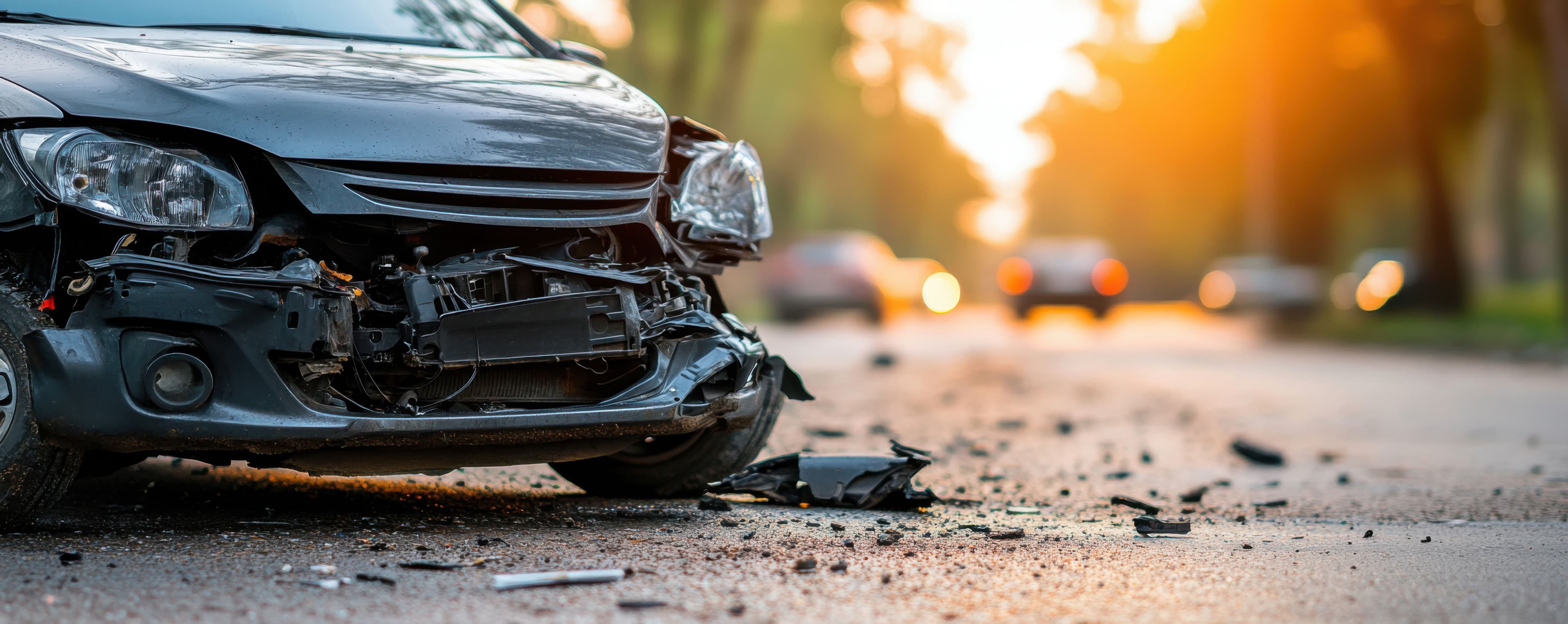


Learn what steps to take after a car accident in Wisconsin and how Trial Lawyers of Wisconsin protects your rights and helps you pursue full compensation.
A car accident can turn your life upside down in an instant. One moment you’re driving home safely — the next, you’re facing pain, confusion, and uncertainty about what to do next. Every year, thousands of Wisconsin residents are injured in crashes caused by negligent, distracted, or reckless drivers.
What happens in the minutes and days following a crash can make or break your case. The right steps can protect your health, your finances, and your legal rights. The wrong steps — or doing nothing — can give insurance companies an excuse to deny or reduce your claim.
At Trial Lawyers of Wisconsin, we’ve represented car accident victims across the state for more than three decades. Our attorneys know exactly how to navigate the legal process and stand up to insurance companies that try to pay victims less than they deserve.
Here’s a step-by-step guide on what to do after a car accident in Wisconsin.
Your safety — and the safety of others — always comes first. After an accident, take a deep breath and check yourself and your passengers for injuries. If anyone is hurt, call 911 immediately.
Even if you feel “fine,” remember that some serious injuries — such as concussions, internal bleeding, or soft tissue damage — may not show symptoms right away. Seeking prompt medical attention protects both your health and your future legal claim.
Once emergency responders arrive, follow their instructions carefully and make sure the police are called to the scene.
Wisconsin law requires drivers to remain at the scene of an accident that causes injury, death, or property damage. Leaving can result in serious penalties.
When police arrive, be calm and cooperative, but avoid admitting fault or speculating about what happened. Stick to the facts — such as where the vehicles were, what direction you were traveling, and what you observed.
The officer will prepare an official accident report, which becomes a key piece of evidence in your case. Make sure to ask how you can obtain a copy later.
If it’s safe to do so, collect as much information as possible before leaving the scene. Evidence disappears quickly, and what you gather now can make a huge difference later.
Try to:
If witnesses saw the accident, politely ask for their names and phone numbers — their statements could be crucial in proving who was at fault.
Even minor crashes can cause significant injuries. Many victims experience pain or stiffness hours or even days after an accident. Always see a doctor as soon as possible — ideally the same day.
Medical records will serve as proof that your injuries were caused by the crash. Delaying treatment gives insurance adjusters an excuse to argue that your injuries aren’t serious or weren’t related to the accident.
Follow all doctor’s recommendations, including follow-up visits, therapy, or diagnostic testing.
You must report the accident to your insurance company within a reasonable time, but be cautious. Insurance adjusters are trained to minimize payouts, even from your own insurer.
When reporting, stick to the facts:
Do not admit fault, guess about speed, or discuss your injuries in detail. Before giving a recorded statement, consult a lawyer to protect your interests.
After the accident, start a dedicated file for all records and documents, including:
Detailed documentation strengthens your claim and helps ensure no damages are overlooked.
It’s natural to want to update friends and family after an accident — but social media posts can seriously hurt your case.
Insurance companies monitor social media for anything they can twist against you. Even a simple post like “feeling better today” could be used to argue that your injuries aren’t serious.
Until your case is resolved, stay off social media or avoid discussing your health, recovery, or the accident altogether.
Navigating an accident claim can be overwhelming — especially when you’re injured. Insurance companies may pressure you into accepting a low settlement or try to blame you for the crash.
That’s where the Trial Lawyers of Wisconsin make a difference. Our attorneys:
We prepare every case as if it’s going to court — and that preparation gives us leverage to win strong settlements.
If another driver’s negligence caused your crash, you may be eligible for compensation covering:
In fatal cases, surviving family members may also pursue wrongful death claims for funeral costs and loss of companionship.
The attorneys at Trial Lawyers of Wisconsin fight to ensure every dollar of damage — physical, emotional, and financial — is fully accounted for.
Wisconsin law gives most accident victims three years from the date of the crash to file a personal injury lawsuit. However, waiting too long can destroy your case. Evidence fades, witnesses disappear, and deadlines can be missed.
The sooner you contact an attorney, the sooner we can preserve evidence, build your claim, and protect your rights.
Since 1990, Trial Lawyers of Wisconsin has stood up for injured people — not corporations. We’ve recovered over $100 million for clients across the state by combining compassion with aggressive trial preparation.
When you choose us, you get:
We believe in restoring balance and holding negligent drivers accountable — one case at a time.
A car accident can leave you feeling powerless — but you don’t have to face the aftermath alone. By following the right steps and working with an experienced legal team, you can take control of your recovery and your future.
At Trial Lawyers of Wisconsin, we stand by our clients from the very first call to the final verdict. If you’ve been injured in a car accident anywhere in Wisconsin, contact us today for a free consultation. Let us fight for your rights, your recovery, and your peace of mind.